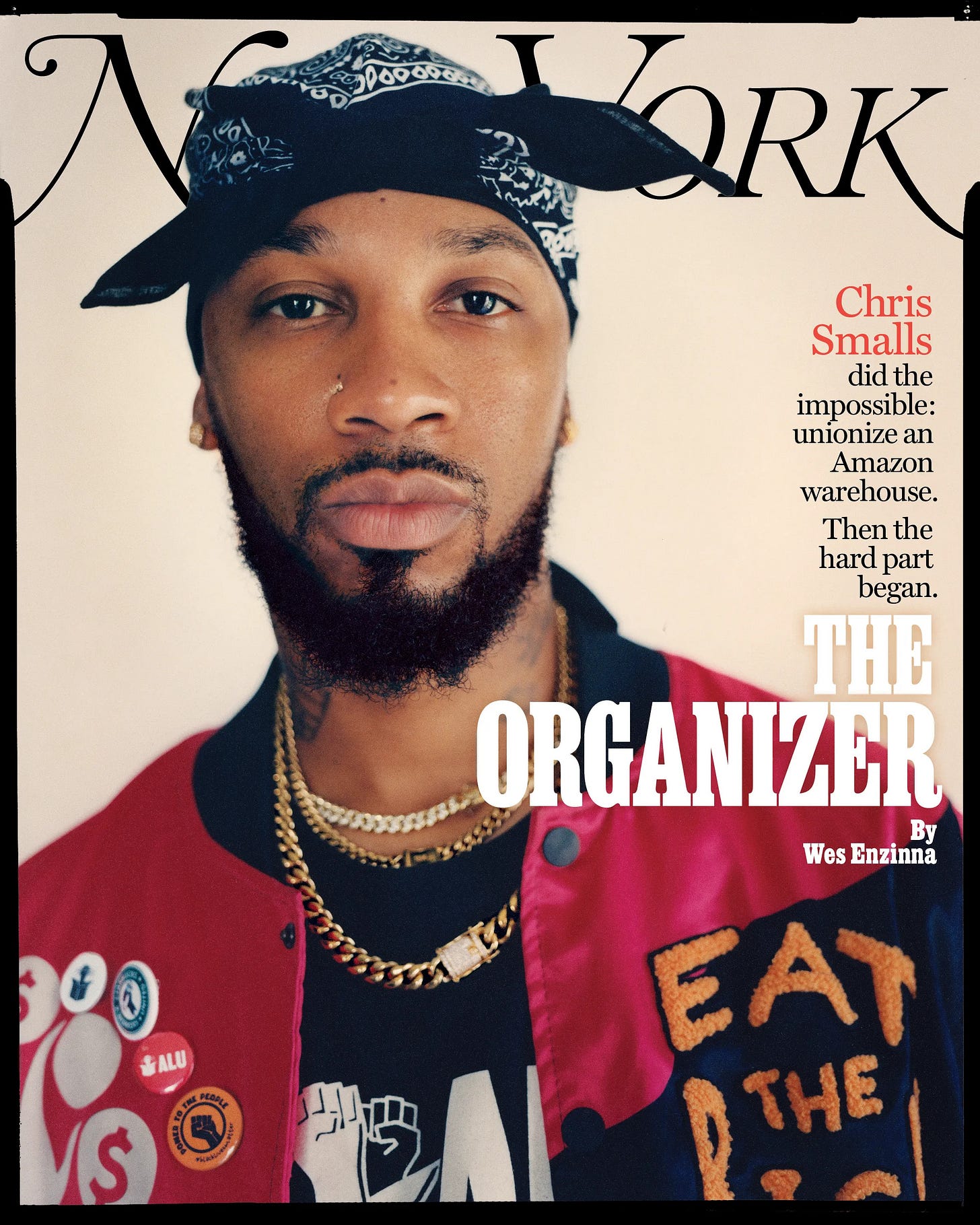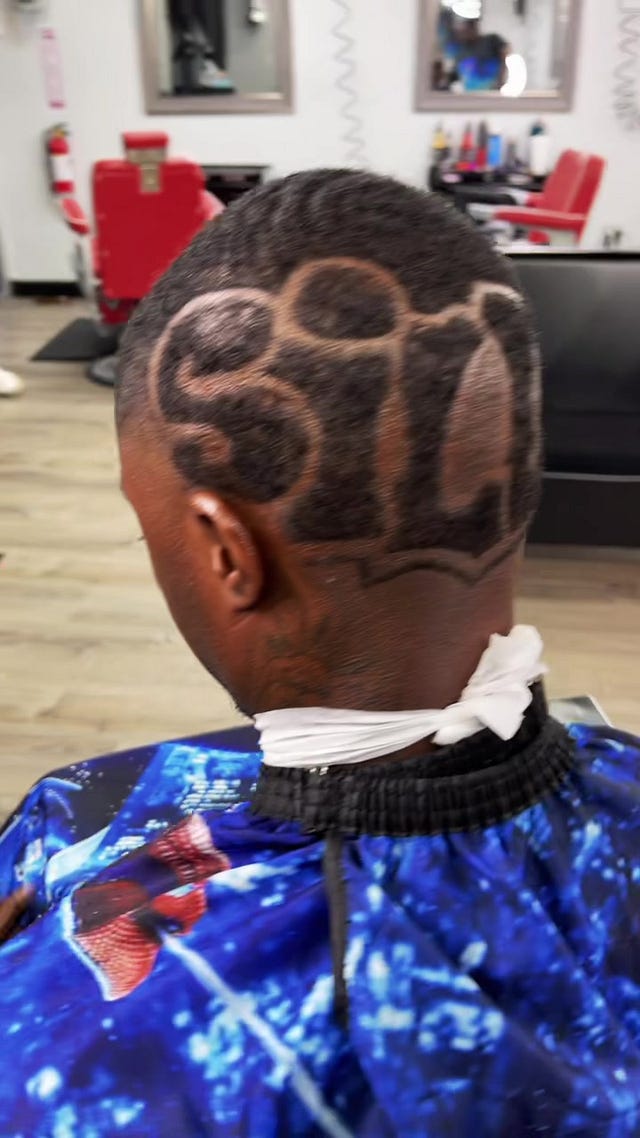Why be serious when you can be silly?
On silliness & the rappers that give me hope
Enjoy an audio reading of this essay, or scroll to keep reading.
Whenever Koku and I hang out, we laugh big. The kind of laughter where one of us doubles over and the other tilts their head back, both letting all the way loose. We jump into extended bits, built elaborately by riffing off one another. We stay smiling. And that lightheartedness doesn’t take away from the depth of our friendship—it contributes to it.
When I was heavily involved in Christian churches and thought it was imperative for me to date a Christian woman who would one day become my Christian wife with whom I’d have Christian kids, part of me believed we had to spend most of our time talking about serious things to have a meaningful relationship—intentional discussions with deep questions that made us think hard and fall harder. I would constantly wrestle in my head about it. And while I won’t say relationships don’t need those things at certain times, I will say many of our friendships and relationships also require whimsy. Playfulness. That silly shit, if you will.
I’m talking about nonsense. Lunacy. Merrymaking. The interactions that make you giggle until everyone in the restaurant is staring, wishing they were having as much fun as you. Elle Hunt, a freelance writer for The Guardian, described this silliness as a “kind of contriving whimsy for whimsy’s sake, that could easily be dismissed as juvenile in adults — especially in those without young children themselves.”
Over the past few months, I’ve been shitposting on LinkedIn, poking fun at the generally self-serious, work-serious way people tend to carry themselves on the platform. In no way is this innovative or original; many are doing it and have done it before me in much more ambitious ways. But I get the most kick out of how people engage unironically with these posts. Or they know the kind of content I tend to share on the platform and still respond professionally. Maybe they’re playing me. And if that’s the case, touché. But I still wonder why we feel like we need to perform seriousness or maturity.
It’s not hard to notice everything is silly right now. And I don’t say that to make light of the horrors we experience daily under oppressive systems that aim to swallow us whole. But there’s a predictability to the workings of what bell hooks called “imperialist, white-supremacist capitalist patriarchy,” describing how these harmful systems are interconnected.
Earlier this week, Columbus Police unveiled “History 1,” their new Black History Month-themed cruiser with a Martin Luther King, Jr. quote on the rear window. Because of course, they did. The levels of copaganda we’ve reached in the United States to conceal state violence and maintain policing are laughable as much as they are infuriating. And unsurprisingly, on the same day that Columbus Police celebrated their new warfare vehicles, reports stated that the police are proposing a new iteration of the “Jump Out Boys,” a unit focused on targeting Black and brown people in the city under the guise of stopping “gang activity.” Because of course, they are.
Another predictable characteristic of imperialist, white-supremacist capitalist patriarchy is individualism — and in that vein, lionizing people, positioning them as heroes or self-made, as a way to shield us from the reality that we are pushed forward and kept alive within community. If we can be convinced we need a savior, the more difficult it becomes for us to see we can save ourselves from these oppressive systems by collectively organizing alongside each other. “We keep each other safe,” proclaim so many of the people who help me imagine and fight for another world.
When considering how these systems promote individualism, I often think about the lionization of Amazon Labor Union president Chris Smalls. Last year, when Amazon workers in Staten Island organized and fought to form Amazon’s first union in the United States, media platforms like NPR and CNBC rushed to position Smalls as the lone architect of a new U.S. labor movement — although he consistently says, “We,” referring to the other workers he organized with instead of “I.” Smalls was profiled by TIME as possibly representing “the future of labor” and was even singularly photographed on the cover of New York Magazine with an all-caps headline that read, “THE ORGANIZER.” On top of all this, the White House invited Smalls and five other union organizers to meet the vice president and labor secretary. While there, Joe Biden surprisingly greeted him—and of course, they got a photo.
As society is currently structured, I recognize that features by major news publications and popular platforms can further legitimize and build awareness of these movements. But I take issue with them being framed as individual actions instead of collective, hard-fought, long efforts toward justice. Within this context of individuals being lionized and pushed to the forefront of the mainstream media circus, there’s an effort to strip those people of their personalities or to attach a singular persona to them. When this happens, there’s a sociological agreement that those people can’t contradict their assigned persona. Because if they do, they’ll be deprioritized and pushed out.
Imperialist, white-supremacist capitalist patriarchy instructs men to be cool, which is to be unflinching, which is to be emotionless, which is to not be femme, which is to not be second-class, which is to be successful and not poor, which is to be powerful. Therefore, the self-seriousness in our culture, which I’m certainly guilty of, is a sign that we are deeply steeped in harmful systems rather than evidence of our own aversion to fun and joy. I find hope in the reality that this humorlessness is not wholly innate. I especially find hope in the new wave of hip-hop artists that are finding success resisting these instructions.
Rap is getting sillier. And that’s not to say rap hasn’t always been silly. As a kid, I had this CD, Millennium Funk Party, and it featured Sugarhill Gang’s “Rapper’s Delight,” considered the first commercially successful hip-hop song. I always used to laugh when Wonder Mike rapped:
“Have you ever went over a friend’s house to eat
And the food just ain’t no good?
I mean the macaroni’s soggy, the peas are mushed
And the chicken tastes like wood”
In middle school, I remember watching Dem Franchize Boyz snap their fingers in all-consuming white tees. And you already know, in sixth grade, I had D4L’s “Laffy Taffy” as my ringtone.
As I got older and grew in my affection for lyricism, I fell in love with silly bars from Lil Wayne like:
“Live from the 504
It’s Mr. Crazy Flow, jumping like a bungee, no rope
Even in the dungeon, I glow; even if it ain’t sunny, I glow
If it ain’t about money, I go… nowhere — I’m nailed to the floor”
In recent years, my favorite silly rapper is 2 Chainz (formerly known as Tity Boi, which is silly enough in itself). There are usually a few moments in every 2 Chainz verse that make me giggle, but probably none more than his verse on Travis Scott’s “3500.” I’m forever quoting his opening lines around my apartment, much to my wife’s chagrin:
“My bathtub the size of swimming pools
Backstroke to my children room!”
It’s not lost on me that I only named men. Rap today looks different than the rap I grew up with, especially as women and queer people in the industry are more visible now than ever before. And in my opinion, they’re making the most exciting music right now. Music that feels free and playful and assertive, whether it’s GloRilla rapping about her “ratchet-ass friends” on “F.N.F. (Let’s Go)” or Ice Spice making the world dance with “Bikini Bottom.”
When Ice Spice released “Bikini Bottom,” last October, I remember talking with Koku about the song in our Writing Boys group chat. He commented on the production, “Goofy ass beat 😂😂 I love it,” to which I replied, “She makes me wanna be a bad bitch.” And it’s true! Even when you watch the music video, its joy and sense of togetherness are palpable. The video is also wonderfully cartoon-like with the all-caps “DAMN” popping up behind Ice Spice in the Spongebob font.
Regarding the men in rap, even as so many of my childhood faves have made it increasingly difficult to continue supporting them and their work, I’ve been encouraged by Zack Fox, BabyTron, and TisaKorean. Fox, whose shut the fuck up talking to me was one of my favorite albums in 2021, is a modern-day renaissance man. On his Spotify Live show, Internet People Live, Fox talks about keeping his imagination alive and how he loved the “pure immaturity” of Atlanta’s snap music in the mid-2000s.
Detroit rapper BabyTron, whose Bin Reaper 3: Old Testament was among my favorite albums last year, raps over hyper-speed, quirky samples, such as Kurtis Blow’s “Basketball” on “AirTron” and the Kenan and Kel theme song on “Remote Control.” On BabyTron’s latest album, Bin Reaper 3: New Testament, he has songs titled “CatDog” after the Nickelodeon show and “Mr. Hanky,” named after the talking turd character from South Park. There’s a sense of BabyTron not taking himself too seriously while taking his flow and punchlines very seriously — so much so that, on the RapCaviar Podcast, Detroit rap legend Boldy James named BabyTron as one of the city’s best new artists.
But no one in rap owns silliness more than Houston’s TisaKorean, the self-proclaimed “mr.siLLyfLow.” Often seen online in a t-shirt or hoodie that says, “silly hoe,” TisaKorean posts up at the gas station usually dancing and always holding a styrofoam cup. “I’m like blame it on the foolishness,” raps TisaKorean on his latest single, “FOOLIE DEE.” On Internet People Live, TisaKorean told Zack Fox, “I want to make whatever’s lame cool.” That’s why TisaKorean has claimed silliness as part of his identity. “Silly? That mean he live… that mean he cool.”
 Tiktok failed to load.
Tiktok failed to load.Enable 3rd party cookies or use another browser
At a time when everything is silly, let’s get serious about what we need. While those in service of oppressive systems work to keep us numb and isolated, silliness is healing. Silliness brings us close. Silliness requires safety, and it also helps us feel safe. Silliness is not ignorant of the harms heaped on us, but it can sustain us from within those harms. Said in another way by Elle Hunt, “Silliness does not have to deny the gravity of the situation — but it can help you get through it.”
I believe silliness can help us see beyond our oppression. To envision a world free of prisons and policing, free of state-inflicted violence. How much joy, how much love, how much laughter could we experience and have the capacity for without imperialism, white supremacy, capitalism, and patriarchy? How can we live into that world right here, right now?
Silliness is part of how we care for one another toward a better world. A world where everyone has what they need. A world you want to live in with those you love, where laughing big and smiling hard are standard, knowing maturity isn’t required of you to be worthy of love and care. A world where it’s okay to do my dance with my cup in my hand.






MAGNIFICENT on all levels 💥 silliness will save the world and shout out 2 Chainz forever